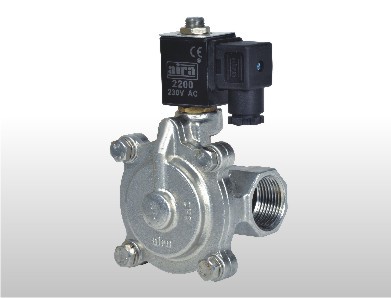When it comes to managing fluid flow, choosing the right valve can make all the difference in terms of efficiency, accuracy, and reliability. In some industrial applications, traditional valves may not be up to the task, which is where diaphragm valves come in. In this blog post, we will take a closer look at diaphragm valves, their benefits, and why finding the right diaphragm valve supplier is crucial to achieving optimal results.
What Are Diaphragm Valves?
As the name suggests, diaphragm valves use a diaphragm made of rubber or other flexible materials to regulate fluid flow. The diaphragm acts as a barrier between the valve body and the fluid, which provides numerous advantages. Not only does it offer a tight seal that prevents leaks, but it also prevents the fluid from coming into contact with the valve body, which can help prevent contamination and corrosion.
Diaphragm valves can be classified into two types: weir and straight-way. In a weir diaphragm valve, the diaphragm is attached to a raised weir around the circumference of the valve body. When the diaphragm is lifted, the fluid flows over the weir and out of the valve. In a straight-way diaphragm valve, the diaphragm seals against a flat surface on the valve body to stop fluid flow.
What Are Diaphragm Valves Used For?
Diaphragm valves are highly adaptable and can be utilised in a variety of industrial applications. They are frequently employed to control the flow of caustic or abrasive fluids, as well as fluids containing suspended particulates. Here are a couple such examples:
- Pharmaceuticals: Diaphragm valves are frequently used in pharmaceutical manufacturing to control the flow of liquids or gases during the manufacturing, filling, or sampling operations. The ability of the diaphragm to form a seal that prevents contamination is critical in keeping pollutants from entering the process stream.
- Water Treatment: Diaphragm valves are used in water treatment and distribution systems to control the flow of water and other substances. Because of the valve's construction, it can handle chemicals like chlorine and sulphur dioxide without corroding or wearing down.
- Food & Beverages: Diaphragm valves are used in the food and beverage industries to control the flow of liquids or gases during the manufacturing process. They are especially beneficial in situations that demand frequent cleaning or where contamination is a concern.
- Chemical Processing: Diaphragm valves are utilised in a variety of chemical processing applications to convey corrosive or abrasive fluids. The ability of the valve to isolate the process stream from the valve body aids in the prevention of corrosion or contamination of the fluid being conveyed.
Benefits of Diaphragm Valves
There are numerous advantages to using diaphragm valves over other valve types. Here are some of the key benefits:
- Reliability: Diaphragm valves are highly reliable, as they can operate effectively even after long periods of inactivity. The diaphragm provides a tight seal that prevents leaks and contamination, while the simple design of the valve reduces the chances of mechanical failure.
- Versatility: As mentioned previously, diaphragm valves can be used in a wide range of industrial applications. This versatility makes them a popular choice for engineers and process managers who need a single valve solution that can be used across multiple applications.
- Low Maintenance: Because diaphragm valves don't have many moving parts, their maintenance requirements are relatively low. Additionally, the diaphragm can be easily replaced if it becomes worn or damaged, which helps to extend the life of the valve.
- Precise Control: Diaphragm valves offer precise flow control, allowing for highly accurate regulation of fluid flow. This can be especially beneficial in applications where accuracy is important, such as in pharmaceutical manufacturing.
Choosing the Right Diaphragm Valve Supplier
Given the importance of diaphragm valves in industrial applications, finding the right diaphragm valve supplier is crucial. You need a supplier who can provide high-quality valves that are built to last and who can provide the support you need when things go wrong. Here are some things to consider when choosing a diaphragm valve supplier:
- Experience: Look for a supplier who has significant experience in supplying diaphragm valves for industrial applications. This experience suggests that they have a track record of providing high-quality valves that meet the unique demands of various industries.
- Customization: Not all industrial applications are the same, so you need a supplier who can provide customized solutions tailored to your specific requirements.
- Technical Support: When it comes to industrial equipment, downtime can be costly. Look for a supplier who can provide the technical support you need to get your equipment up and running quickly in the event of a failure.
- Quality Control: The right supplier will take quality control seriously, with a rigorous testing process for every valve they produce.
Conclusion
Diaphragm valves are a versatile and reliable solution for a wide range of industrial applications. Whether you're working in pharmaceuticals, water treatment, food, and beverages, or chemical processing, finding the right diaphragm valve supplier can make all the difference. With its ability to provide precise flow control, low maintenance requirements, and overall reliability, a diaphragm valve can be an excellent investment for your business. Remember, only choose reliable and trustworthy suppliers like us – the best diaphragm valve supplier.


No comments yet